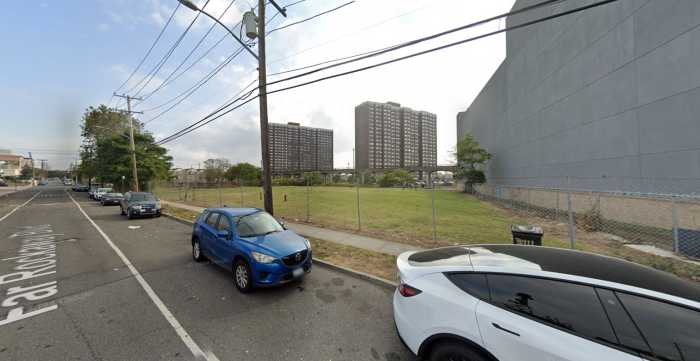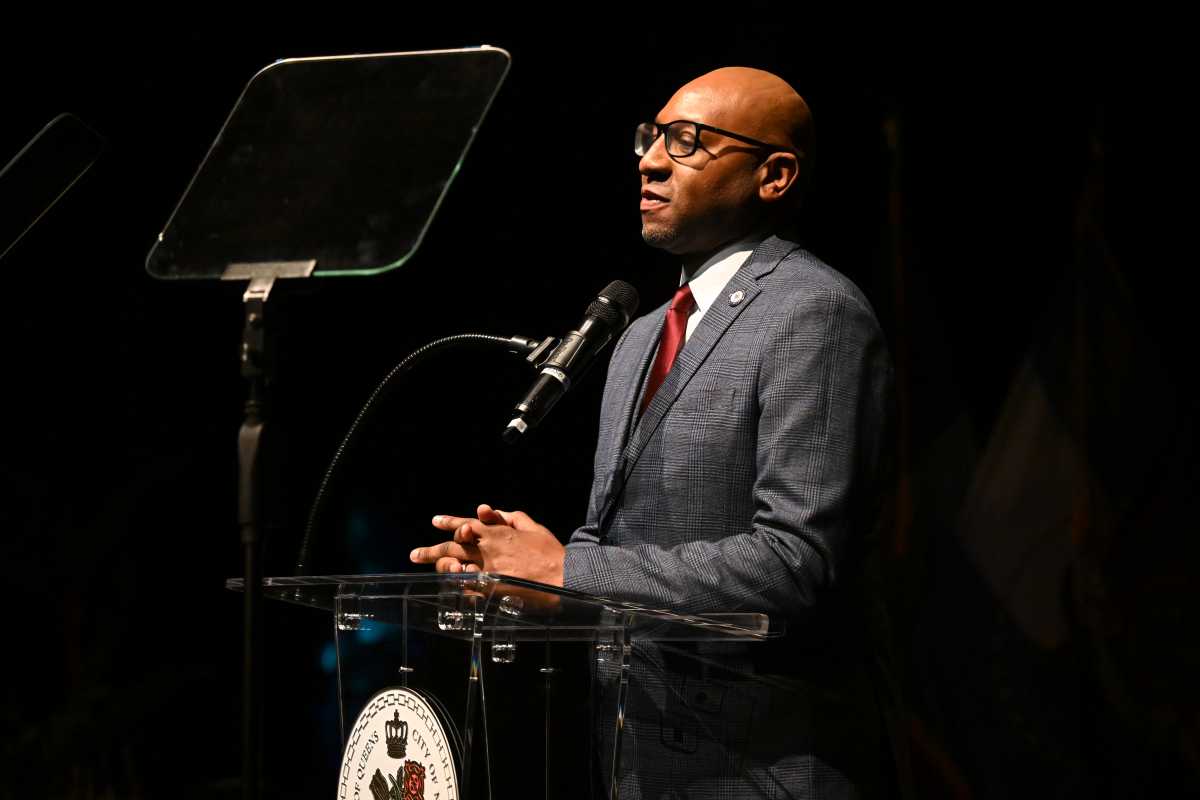Gov. David Paterson on Christmas Eve granted pardons to 24 immigrants who were subjected to deportation because of prior criminal convictions.
His latest pardons came on the heels of six he had granted earlier this month, including four Caribbean nationals, who had faced similar fate.
“Over the course of my administration’s review of more than 1,100 pardon applications, it became abundantly clear that the federal government’s immigration laws are often excessively harsh and in need of modernization,” said Paterson in a statement.
“The individuals pardoned today committed past offenses but paid their debt to society,” he added.
“They now make positive contributions to our state and nation, and I believe they should be protected from inflexible and misguided immigration statutes,” Paterson continued.
In May, the governor created a special Immigration Pardon Panel to collect information and provide recommendations on pardons for deserving individuals to assist them in avoiding deportation.
He said the initiative was designed to address and counter aspects of the immigration laws that may result in “inflexible and unjust decisions to remove legal immigrants from the United States, often tearing them away from their children and spouses.”
“In many of these cases, the individual’s efforts toward rehabilitation, their years of living a law-abiding life in the community and their positive contributions to society have not been considered by Immigration and Customs Enforcement (ICE) in the decision to deport,” Paterson said.
He said one harshness of the federal law results from retroactive changes made in the mid-1990s, in which crimes that did not previously carry the consequence of deportation, were made deportable.
In many other cases, Paterson said individuals had previously pled guilty without being aware that their plea might subject them to mandatory deportation.
As a result, many Caribbean and other nationals, who were convicted many years ago, are now facing deportation, often after they apply for citizenship or seek to renew their permanent resident status.
Additionally, Paterson said individuals may face deportation to a country they left as a child, where they now have no relatives, may not speak the language and have no place to live or means to support themselves.
“That our federal government does not credit rehabilitation, nor account for human suffering is antithetical to the ideals this country represents,” he said.
“With these pardons, I have selected cases that exemplify the values of New York State and any civilized society: atonement, forgiveness, compassion, and the need to achieve justice, and not simply strict adherence to unjust statutes,” he added.
“I will not turn my back on New Yorkers who enrich our lives and care for those who suffer,” Paterson continued.
Except for Haitian Edouard Colas, the governor did not state the nationalities of the latest immigrants whom he pardoned.
They included: Tressan Allen, who, in 2002, was convicted of Attempted Criminal Possession of Marijuana in the Fourth Degree; Luz Marina Camacho was convicted of drug sale and possession crimes in 1983. She was sentenced to 15 years to life in prison, but former Gov. Mario Cuomo commuted her sentence in 1991; Ian Carter pled guilty to Attempted Criminal Sale of Stolen Property in the Third Degree in 1994 and was sentenced to five years on probation; and Colas was convicted in 1997 of Attempted Burglary in the Third Degree and sentenced to five years on probation.
Lucila Cruz is convicted of Attempted Grand Larceny in the Third Degree in 1996, and was sentenced to a conditional discharge; Vijay Dandapani was pardoned for a 1993 conviction of first-degree grand larceny, for which he served a one-to three-year sentence; Neil Drew was convicted of third-degree grand larceny in 1998, for which he served a one-to-three year sentence and made restitution; and Carol Hamilton, now a religious minister, was convicted of two Class A misdemeanors of Criminal Possession of Marijuana in the Fourth Degree in 1995 and 1986, for which he was sentenced to a conditional discharge and a fine, respectively.
In addition, Olusegun Ola Johnson, was convicted of three counts of second-degree forgery and one count of third-degree grand larceny in 1990, for which he was sentenced to five years of probation; Walter Mills, now 60 years old, was convicted of attempted possession of a firearm in 1973 and was sentenced to a conditional discharge.; Pedro Montesquieu was convicted in 2000 of attempted Criminal Sale of a Controlled Substance in the Third degree and was sentenced to five years on probation; Francisco Moya de Leon was convicted in 1994, of fourth-degree criminal possession of a controlled substance for which he served five years on probation.
Frances Novoa is being threatened with removal for attempted petit larceny convictions from 1984 and 1974, for which she was sentenced to a conditional discharge; Angela Parker was convicted, in 1989, of two counts of third-degree criminal sale of a controlled substance and one count of first-degree assault and was sentenced to 1½ to 4½ years in state prison; Juan P. Ramirez, was convicted in 2003 of two misdemeanors; Laurenton Rhodon faces removal as a result of a 1995 conviction for Attempted Criminal Possession of a Controlled Substance in the Third Degree, for which he was sentenced to five years probation.
Fredy C. Rojas, a veteran of the U.S. Army and after having served our country for eight years, is deportable as a result of a single misdemeanor drug possession conviction in 1995; Jose Sanchez was convicted in 1989 of fifth-degree criminal possession of a controlled substance and sentenced to five years on probation; Melbourne Sinclair convicted in 1990 of the misdemeanor offense of fourth-degree criminal sale of marijuana and sentenced to a fine; Eligio Valerio was recently the subject of immigration proceedings based on a 1986 conviction for fifth-degree criminal sale of a controlled substance and a 1988 conviction for fourth-degree criminal possession of a weapon.
Salvador Gonzalez was convicted of first-degree assault in 1975, for which he served a one to three year sentence in State prison; Engels R. Guzman, was convicted of second-degree robbery in 1990; Jose Palma faces deportation as a result of a first-degree reckless endangerment conviction from 1978, for which he served 60 days in jail and five years on probation; Randy Valentin De La Cruz faces removal as a result of a 1984 conviction for first-degree assault, for which he was sentenced to 1½ to 4½ years in prison.
























